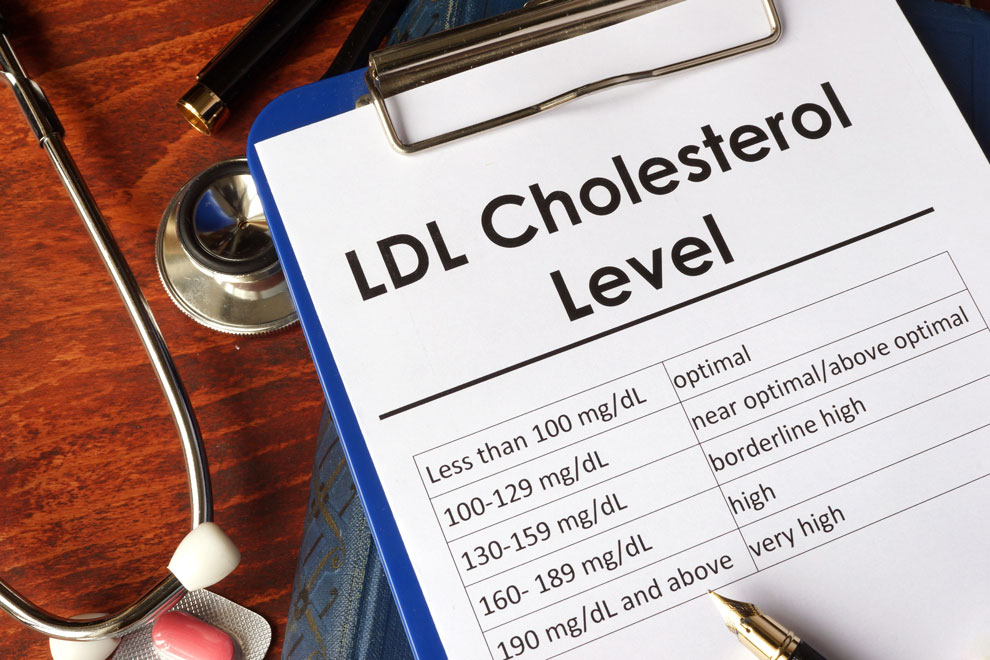Advertisment
Investigative recaticimab cuts bad cholesterol dramatically

Patients treated with the investigative PCSK9 inhibitor recaticimab have achieved highly significant reducions in bad cholesterol, and they have done so with less frequent injections than patients treated with other PCSK9 inhibitors.
Researchers reported these findings on Nov. 12, 2023 at the American Heart Association Scientific Sessions.
“Previous studies found that 30% to 40% of people discontinued their current PCSK9 therapies, given every two to four weeks, during or after six months of beginning treatment,” said lead study author Xin Du, Ph.D., a professor of cardiology at Beijing Anzhen Hospital and the Capital Medical University in Beijing, China. “More flexible dosing with recaticimab, given up to every 12 weeks, might increase the proportion of people with high levels of bad cholesterol to stick with their recommended treatment to lower bad cholesterol levels and reduce risk of heart disease.
In the newly reported clinical trial, REMAIN-2, the researchers evaluated the safety of recaticimab and its efficacy in lowering lower bad cholesterol (LDL/low-density lipoprotein cholesterol) at different doses and intervals, and in subjects diagnosed with non-genetic forms of high cholesterol.
The Phase 3 study was conducted between June 2021 and March 2023. Average age of subjects at enrollment was 56 years, and 64% were male.
About 69% of the subjects had thickening or hardening of the arteries. All had highly elevated high levels of bad cholesterol (more than 70 mg/dl for those with cardiovascular disease and more than 100 mg/dl for those without). All had received and continued to receive moderate or high-intensity statin therapy.
Investigators in China enrolled 689 subjects who were divided into 3 cohorts. One received either 150 mg of recaticimab or a placebo by injection every 4 weeks. A second cohort received 300 mg of recaticimab or placebo by injection every 8 weeks. And a third cohort received 450 mg of recaticimab or placebo by injection every 12 weeks.
The investigators reported that, at all doses and intervals, subjects treated with recaticimab achieved statistically significantly lower bad cholesterol levels at 24 weeks than those receiving a placebo (p<0.0001).
In the 4-week treatment cohort, bad cholesterol fell by 62% among subjects receiving recaticimab compared to 0% among subjects taking a placebo.
In the 8-week treatment cohort, bad cholesterol fell by 59% compared to a 0.4% increase among subjects taking a placebo.
In the 12-week treatment cohort, bad cholesterol fell by 51% compared to a 2% increase among subjects taking a placebo.
At every dose and treatment interval, recaticimab subjects achieved a lowering of their bad cholesterol to target by 24 weeks. This achievement was maintained at 48 weeks.
At 24 weeks, 90% of the 4-week recaticimab injection cohort reached goal compared to 16% of those treated with placebo. The percentage was 95% vs. 14% respectively in the 8-week recaticimab injection group, and 86% vs. 16% respectively in the 12-week recaticimab injection group.
Over the 48 weeks, injection site reaction rates were 3.9% in the recaticimab and 1.3% in the placebo groups.
“Since all the doses and frequencies had similar effectiveness and safety, this may someday provide patients and physicians with more flexible options,” Du said.
The authors concluded, “REMAIN-2 demonstrated the efficacy and long-term safety of add-on recaticimab, as an effective therapeutic option with an infrequent dosing interval, in pts [patients] with non-FH [familial hypercholesterolemia] and mixed hyperlipidemia inadequately controlled on stable statin therapy.”





